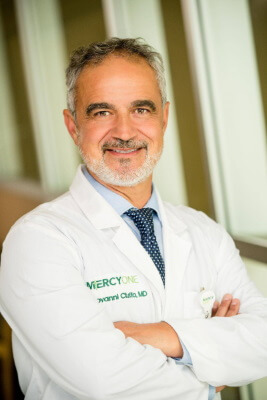
Heart surgery, also known as cardiac surgery, is a medical procedure that has saved countless lives by treating various heart conditions. Traditionally, heart surgery involves the use of blood transfusions to replace lost blood during the procedure. However, in recent years, there has been a growing interest in bloodless heart surgery, a technique that eliminates or significantly reduces the need for blood transfusions.
Bloodless Heart Surgery
While bloodless heart surgery offers numerous advantages, it’s essential to acknowledge patients need to be well-informed about the process and decide whether it is a good option for their individual needs. Here at Minimally Invasive and Bloodless Heart Surgery with Dr. Giovanni B. Ciuffo, we will explore everything you need to know about bloodless heart surgery, from its benefits to the techniques used.
Why Bloodless Heart Surgery?
Bloodless heart surgery care is an increasingly popular choice for all patients who need surgery in a growing number of medical institutions. It is interesting to note that more and more patients are becoming interested in bloodless heart surgery, regardless of their religious beliefs. It turns out that avoiding the transfusion of blood products has significant clinical benefits. Bloodless heart surgery has gained popularity due to several compelling reasons:
- Reduced Risk: Blood transfusions come with potential risks, including transfusion reactions, infections, and compatibility issues. Bloodless heart surgery eliminates these risks, making it a safer option for some patients.
- Keep The Immune System Strong: A downfall of blood transfusions is that they can weaken the immune system and cause it to be less reactive. A weak immune system will not be able to fight infections or cancer cells nearly as well as a strong immune system.
- Improved Outcomes: Research suggests that patients who undergo bloodless heart surgery may experience improved outcomes in terms of shorter hospital stays and faster recovery times.
- Stop An Inflammatory Response: Inflammatory responses are also seen in patients after a transfusion with an accumulation of inflammatory fluids in various organs (lungs, kidneys, muscles) and soft tissues that effectively slow down the recovery period after open heart surgery.
Techniques Used in Bloodless Heart Surgery
Bloodless heart surgery employs various techniques to minimize blood loss and reduce the need for transfusions. These techniques may include:
- Extra Corporeal Circulation: The entire blood volume can be kept in circulation at all times in compliance with the principles and beliefs of the Jehovah’s Witness community.
- Beating Heart Surgery: Beating Heart Surgery is a technique for coronary artery bypass. It avoids using the heart-lung machine and helps us maintain a better ability to coagulate and stop bleeding after surgery.
- Blood Salvage: A “cell saver” machine filters and returns the patient’s blood to his/her own circulation. A closed circulation loop with no storage can be maintained at all times.
- Intraoperative Hemodilution: Some of the patient’s own blood can be removed prior to surgery and replaced with fluid. After surgery, the patient’s blood is re-circulated into the patient’s body with the advantage of fresh, intact coagulation properties.
- Careful Cell Saver Recycling And Rinsing: Careful Cell Saver Recycling and Rinsing uses a machine known as a cell saver to collect what a patient loses during surgery, rinse away unneeded fat and tissue, and then centrifuge and separate the red cells, which are then returned to the patient should he or she need it.
Candidates for Bloodless Heart Surgery
Bloodless heart surgery may be suitable for various patients, including those who
- Have religious or cultural objections to blood transfusions.
- Wish to avoid the potential risks associated with blood transfusions.
- Have medical conditions that increase the risk of transfusion-related complications.
- Seek faster recovery and reduced hospital stays.
The suitability of this approach depends on the specific procedure, the patient’s overall health, and the expertise of the surgical team.
Contact Dr. Ciuffo Today
If you or a loved one is interested in further information about bloodless heart surgery, please get in contact with us today. Visit our website to make an appointment, or call our office at (702) 333-7200 to speak with a team member. For additional information about our practice, please visit Nevada Heart and Vascular or University Medical Center.

